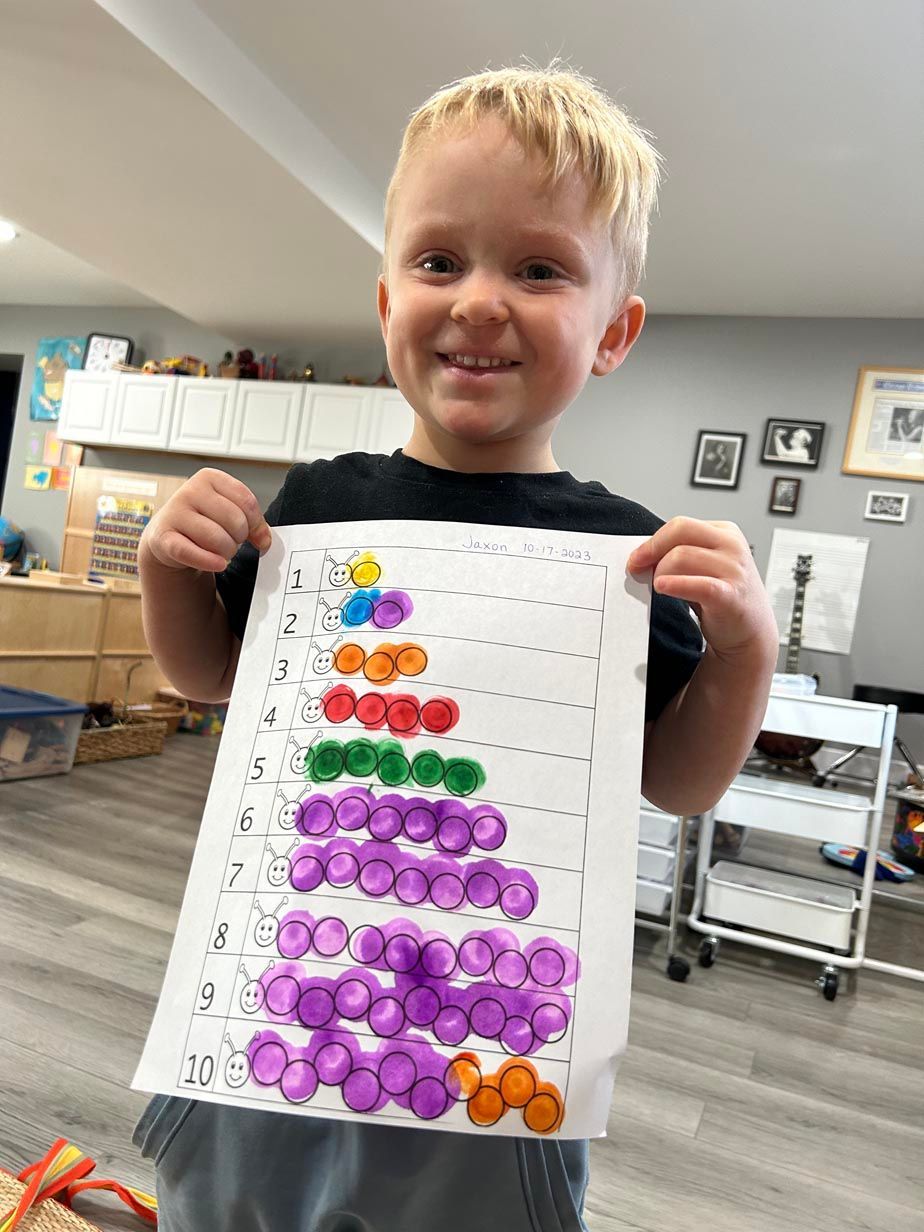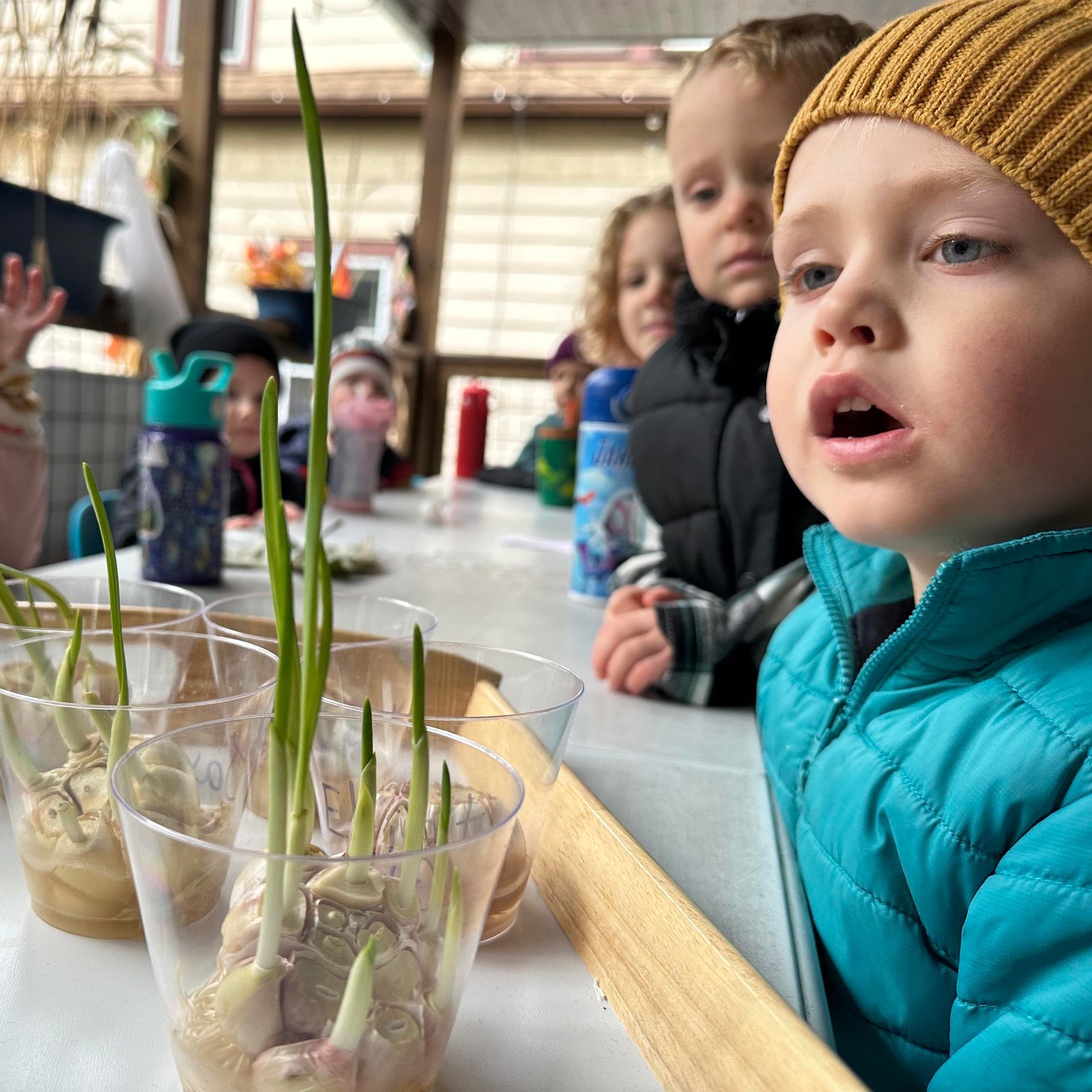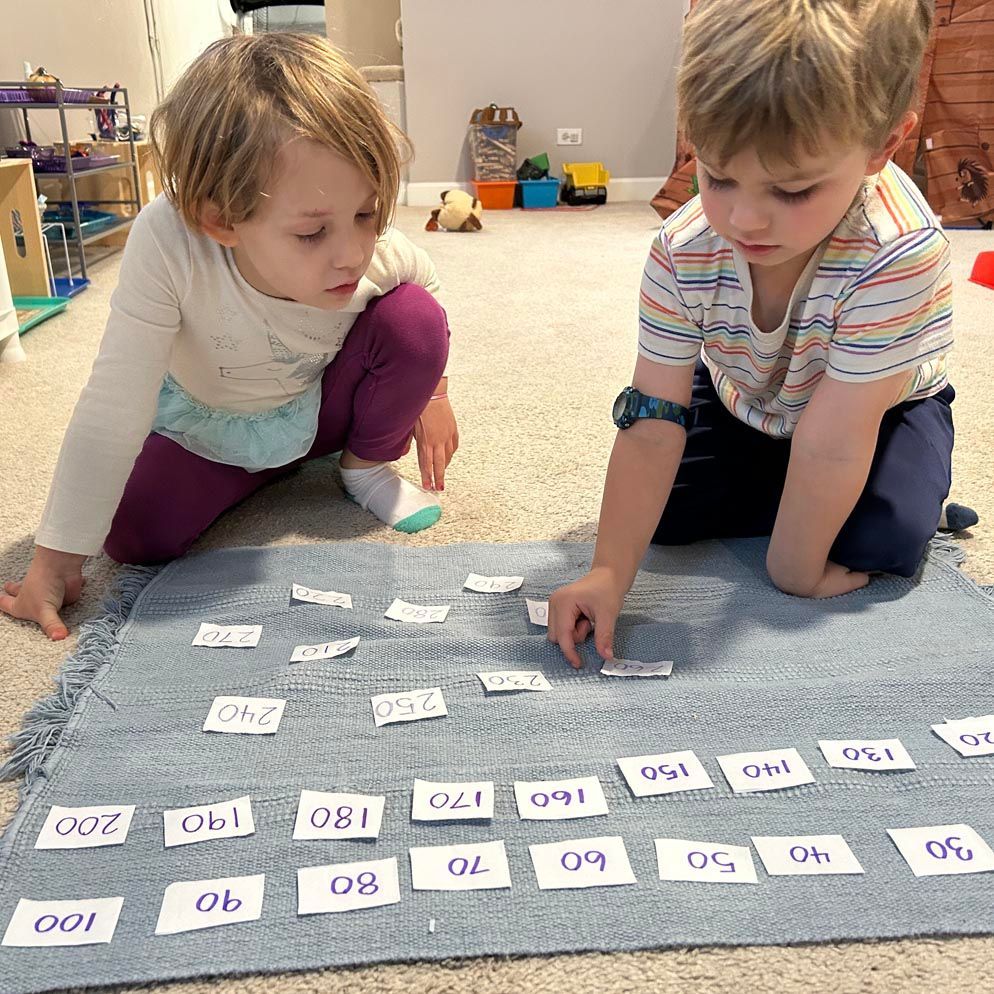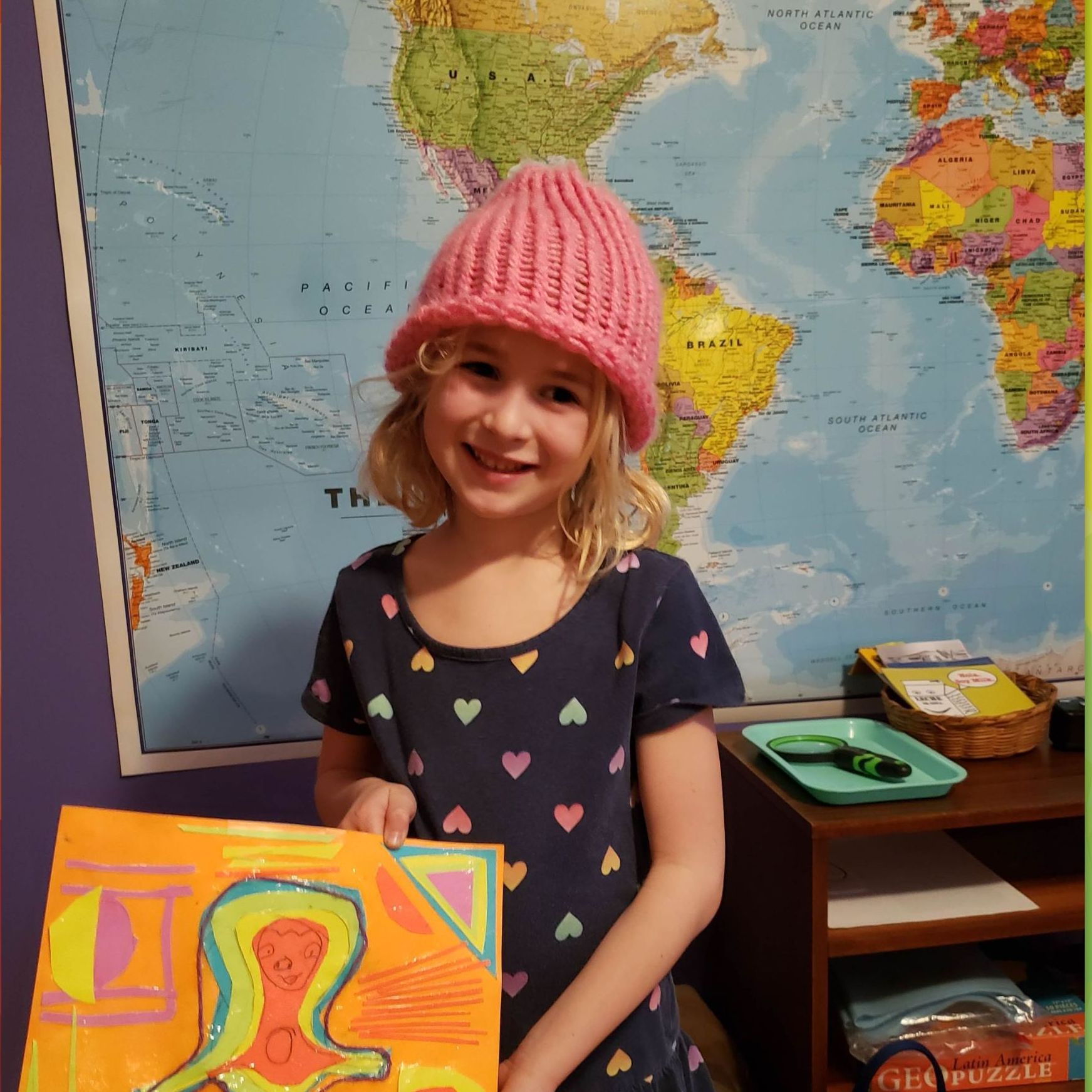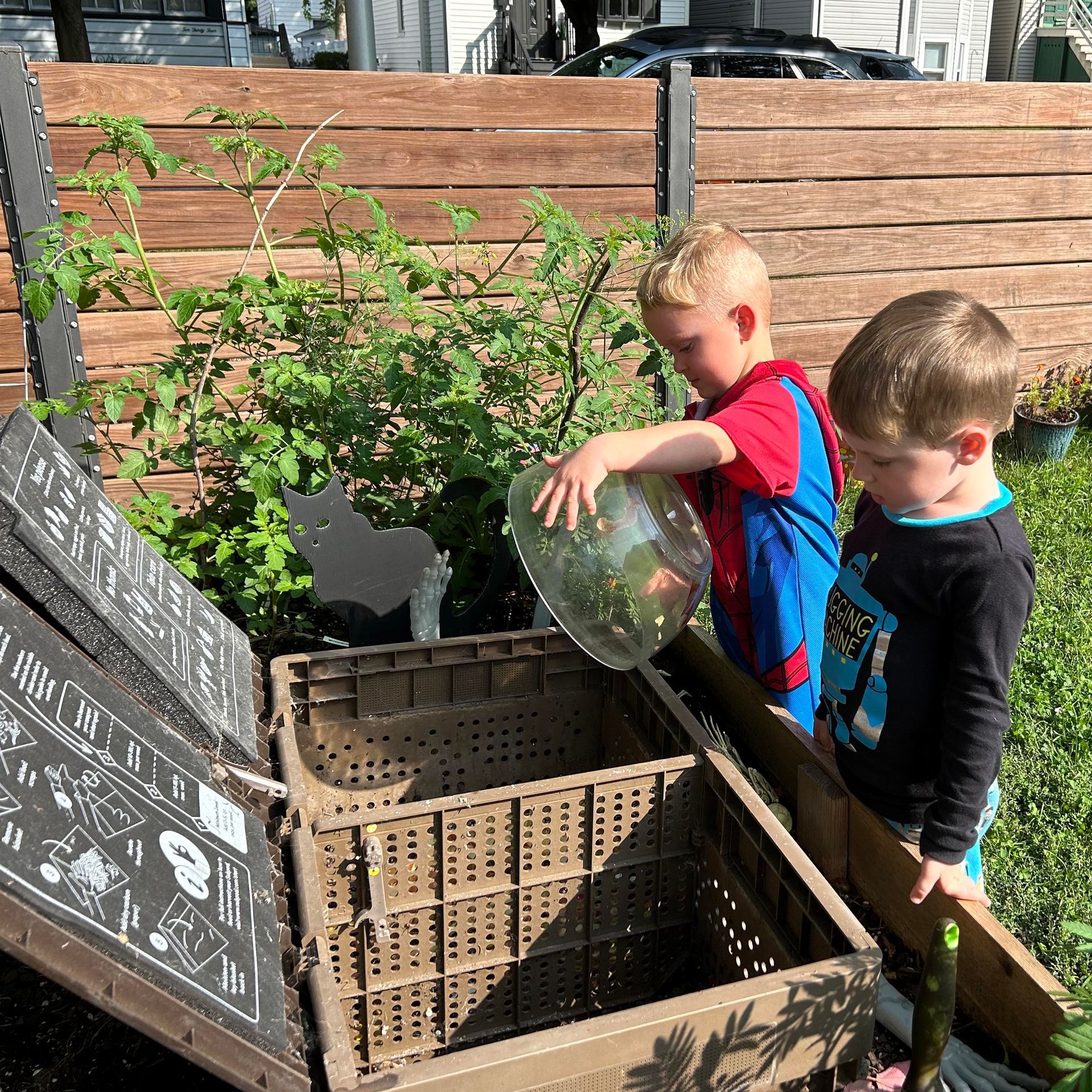PRE-K & KINDERGARTEN
Philosophy & Program Overview
A.L.M.A.’s educational philosophy is a uniquely holistic blend of best-practice teaching methods. We believe in the power of curiosity, creativity, and community! We nurture whole-child development through hands-on learning, joyful exploration, meaningful play, and collaborative work.
Every day, our students have a healthy balance of time to learn, play, create, and connect. Together we enjoy interdisciplinary explorations of art, language, culture, music, math, nature, and science. Our curriculum meets or exceeds state standards in all academic areas. And our three-year cycle enables us to individualize and maximize each child’s learning.
We regularly observe and record each child’s development. We tailor our approach to meet their needs, both academically and socially-emotionally. We deeply respect each child’s individual strengths, challenges, and lived experiences.
All day every day, we guide our students through understanding and managing their feelings. We use daily mindfulness practices to help them quiet their minds and connect with their hearts. We mentor them through collaborative problem-solving. We model intentional community building. We teach our students how to engage in respectful, compassionate communication with each other and themselves.
Academics
A.L.M.A. graduates are first-grade ready — and they love learning!
We nurture whole-child development through a combination of individualized academic learning and interdisciplinary group projects. Our curriculum meets or exceeds state standards in all areas: math, language arts, science, social science, physical development, fine arts, and world language.
Our beautiful Montessori materials engage students in individual hands-on academic learning. We then apply and solidify those skills with fun real-world projects like cooking and gardening! These group projects enable side-by-side learning and empower students to share their knowledge confidently and collaboratively.
We keep class sizes small so that we can tailor our instruction to meet each child's needs. Our three-year cycle means that each child can learn key skills at their own pace. And learning in a mixed age group means that no one feels ahead or behind.
We regularly observe, record, and reflect on each child’s development across all learning areas. We use this to inform our teaching and communicate pertinent assessments to parents. If it seems a child might benefit from additional services, we can help connect families with available resources.
Arts, Language, Music
Arts
Art activities are open-ended and process-focused. Children begin with an exploration of different styles of art. Interesting materials and a comfortable work space inspire creativity. Teachers share lessons while inviting the children to produce their own unique vision. Together we explore and experiment with various styles, forms, and mediums. Our Student Art Shows are truly inspiring!
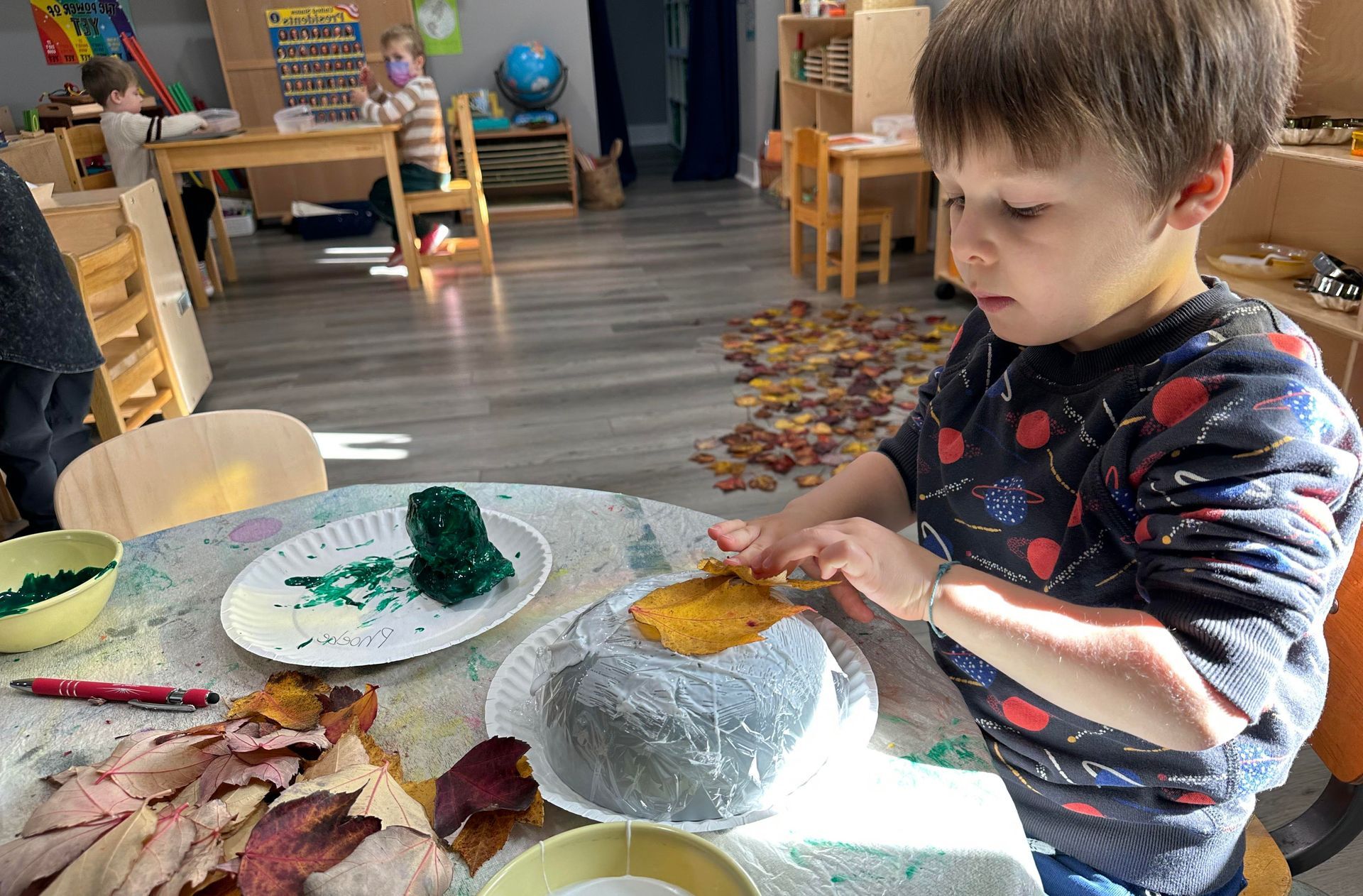
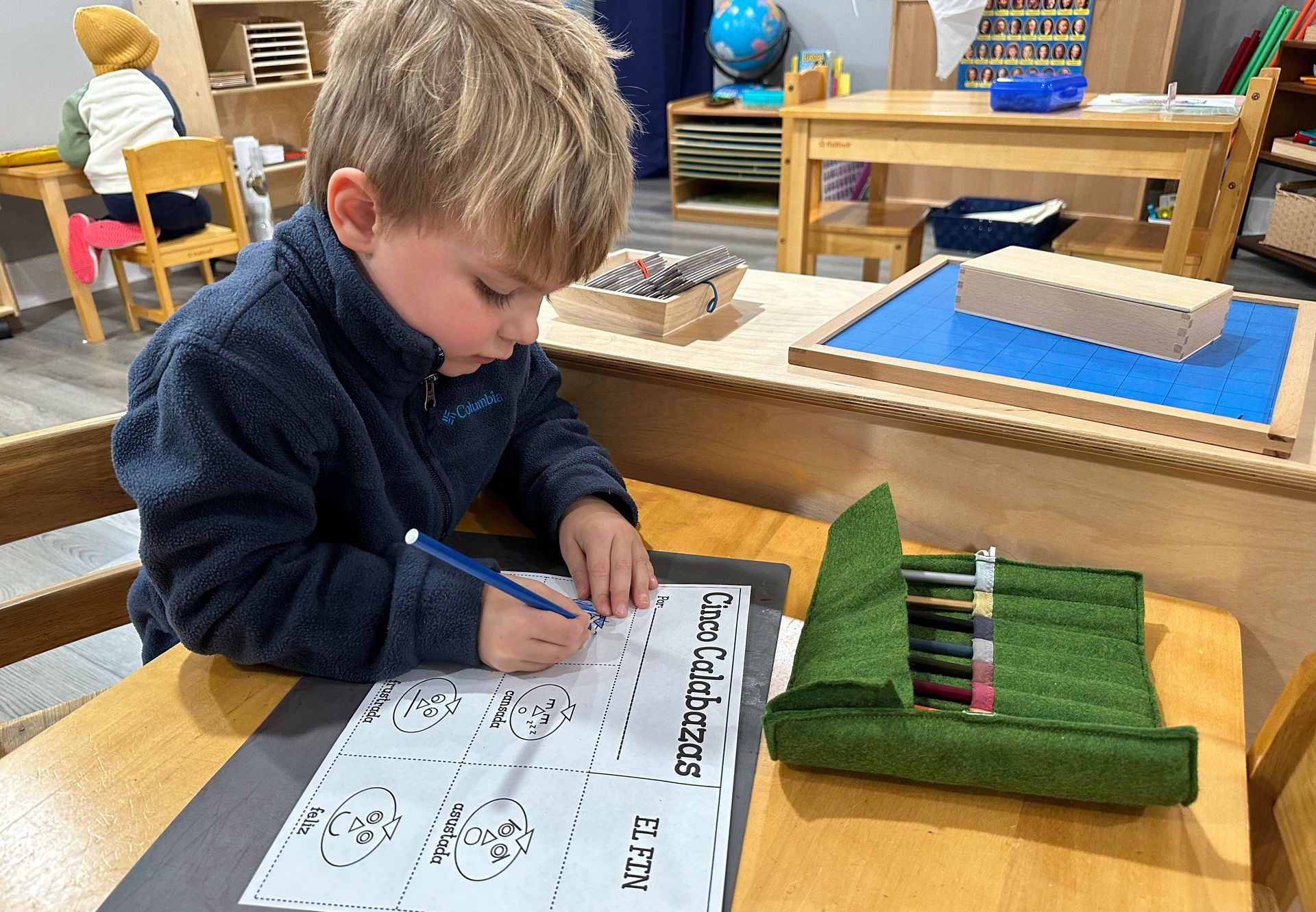
Language
Our students learn to use language in the most natural and fun way: they have meaningful conversations about the things that interest them! We introduce world languages through activities that celebrate cultural diversity, including the arts, music, and cuisine. We weave exposure to world language into daily activities to build children’s natural interest and lay the neural pathways for future continued learning.
Music
At A.L.M.A., we integrate music into every aspect of our curriculum. You can hear us singing throughout our entire day! During circle time, students enjoy teacher-led songs, finger-plays, and dances. During work time, children explore real tuned instruments including piano, guitar, ukulele, Loog, autoharp, xylophone, drums, and percussion instruments from around the world. We enjoy spontaneous song writing and rhythm exploration, as well as more structured music theory lessons with concrete materials. We take every opportunity to encourage and inspire our students to share their confident, joyful self-expression!
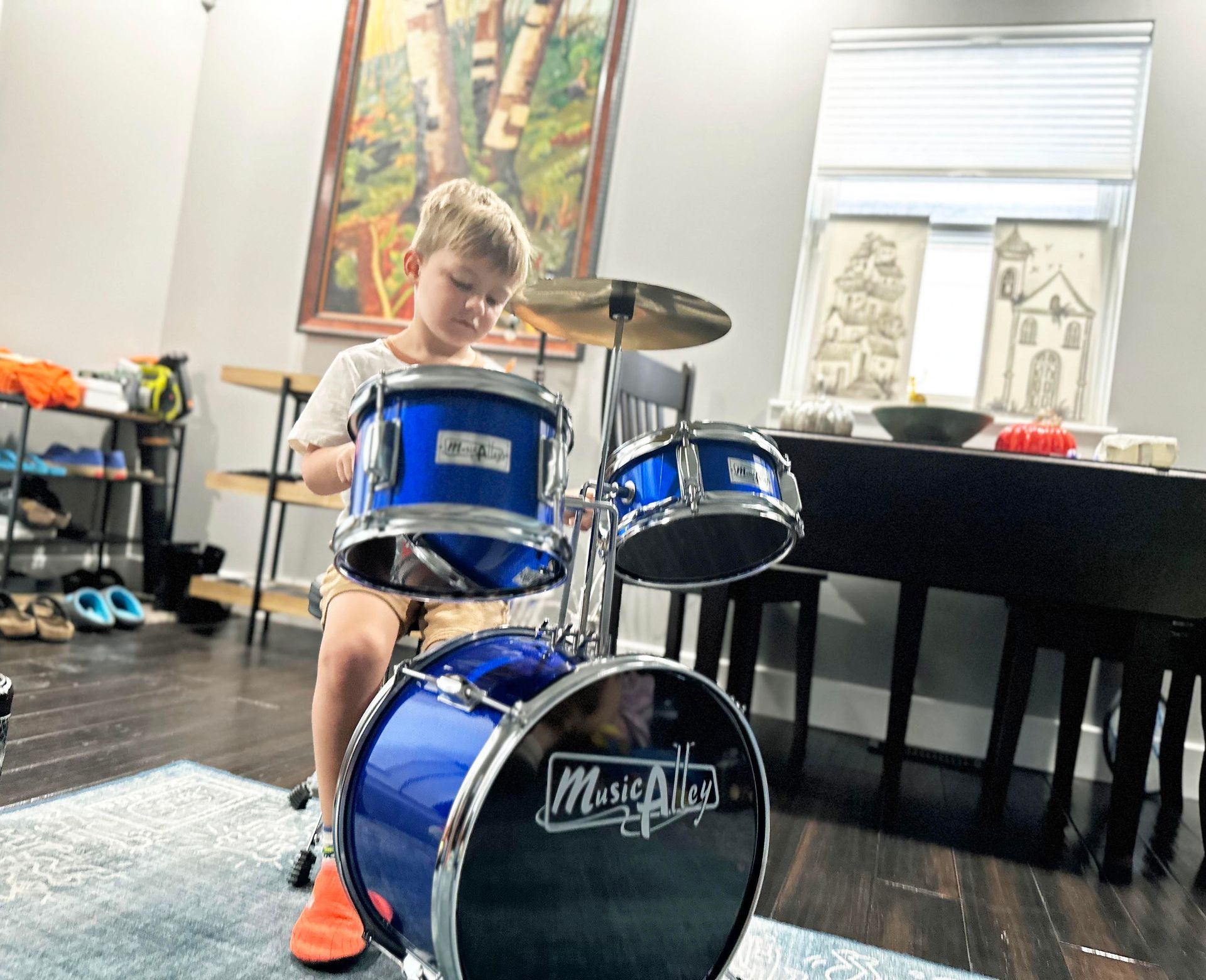
Nature
We believe in the power of nature.
Studies show that children’s stress levels fall within minutes of seeing green spaces. Making direct contact with soil has been shown to improve mood, reduce anxiety, and facilitate learning.*
Our beautiful green space contains an outdoor "kitchen" and materials for building large play structures, obstacle courses, and shelters. Our students become caretakers of the natural environment while tending their organic gardens. We learn the names and characteristics of local plants, flowers, trees, bugs, birds, and animals. We do science experiments, create art, and make music outside.
We strive to spend at least a quarter of the school day outdoors every day!
*”The Dirt on Dirt,” National Wildlife Federation, 2012.
Play
We believe play is a child’s work.
Play teaches children crucial life skills. It is a critical tool in self-formation and early social-emotional learning. Research shows that well-developed play helps positively develop self-regulation and social skills. It also promotes executive function skills, and contributes to emerging mathematical abilities and early literacy concepts!
We give the children choices in their play and an environment rich with possibilities and activities. Imaginative play empowers children to become more than their current reality, expanding their self concept and awareness. Open-ended play invites children to think their way into and out of problems. Designing their own activities promotes cooperation and deeper learning through purposeful play.
Learning should be fun! We deeply respect the importance of play and incorporate it into all that we do.
Social-Emotional
We know that in order to learn, children must first feel safe and loved. That feeling of comfort and security empowers them to try new things, challenge themselves, make mistakes as they learn, and communicate their feelings and needs.
We designed our school to feel like a second home. We keep our student-teacher ratio very low to enable lots of one-on-one time with each child. This allows us to build strong, trusting, long-lasting relationships that facilitate deep learning and social-emotional growth.
Every day, we use simple mindfulness practices to quiet our minds, calm our bodies, and connect with our hearts. We model and guide the development of empathy, communication, and conflict-resolution skills.* We teach our students how to build healthy relationships and create compassionate community.
When dealing with challenging behaviors, we assess and address the child’s underlying need(s) in a positive, constructive way. We work closely with families to fully understand and support the child’s growth.
*We utilize the
Nonviolent Communication (NVC) method by Marshall B. Rosenburg, Ph.D.
Anti-Bias Education
Anti-bias education is an early learning approach that encourages respecting and embracing differences while acting against bias and unfairness. It helps children develop a confident sense of identity without needing to feel superior to others. It faciliates an ease with human diversity, a sense of fairness and justice, the skills of empowerment, and the ability to stand up for themselves or for others.
The value-based principles and goals of anti-bias education inform all aspects of our program:
Goal 1
Each child will demonstrate self-awareness, confidence, family pride, and positive social identities.
Goal 2
Each child will express comfort and joy with human diversity, accurate language for human differences, and deep, caring human connection.
Goal 3
Each child will increasingly recognize unfairness, have language to describe unfairness, and understand that unfairness hurts.
Goal 4
Each child will demonstrate empowerment and the skills to act, with others or alone, against prejudice and/or discriminatory actions.
We strive to build a more compassionate, peaceful, just world.
Reference:
Anti-Bias Education for Young Children and Ourselves, Louise Derma-Sparks and Julie Olsen Edwards, 2020.
Why Stay for Kindergarten?
